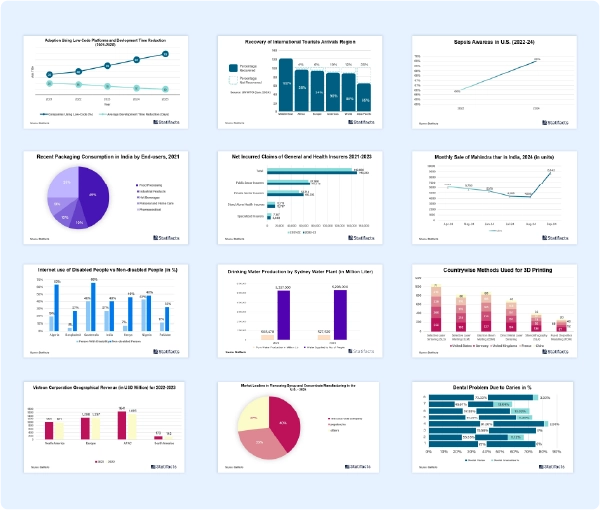

Our customers work more efficiently and benefit from
The global metabolomics market size is calculated at USD 3,250 million in 2024 and is predicted to reach around USD 11,530 million by 2034, expanding at a CAGR of 13.5% from 2025 to 2034.
| Industry Worth | Details |
| Market Size in 2024 | USD 3,250 Million |
| Market Size in 2025 | USD 3,690 Million |
| Market Size by 2034 | USD 11,530 Million |
| Market Growth Rate from 2025 to 2034 | CAGR of 13.5% |
The metabolomics market provides insight into physiological and pathological processes critical to disease research, drug discovery, and personalized medicine. The rapid expansion of the metabolomics market owes itself to the input of information technology devoted to bioinformatics, mass spectrometry, and nuclear magnetic resonance (NMR) spectroscopy and how, through these techniques, metabolic pathways are analyzed with greater precision. Metabolomics is fast becoming associated with the development of personalized healthcare solutions and has drawn attention from scientists in the field, such as biomarker discovery, clinical diagnostics, and pharmaceutical research.
One of the major growth drivers for the metabolomics market is the increasing demand for biomarker discovery protocols to facilitate rapid disease diagnosis and effective precision medicine. Biomarkers are widely used in disease state identification, predictive modalities for treatment response in patients, and monitoring of the disease. Metabolomics offers crucial insights into the metabolic changes associated with diseases such as cancer, diabetes, and neurological disorders, allowing for the development of more effective treatments.
Considerable developments in metabolomics have been noticed in such analytical techniques as mass spectrometry (MS) and nuclear magnetic resonance (NMR) spectroscopy. These technologies have allowed researchers to accomplish better accuracy, sensitivity, and throughput in metabolite analysis, enabling even complex biological systems to be studied. Biochemical analysis software improvements and AI-assisted data analysis have become very useful to researchers in the data processing of large metabolic datasets.
The pharmaceutical and biotechnological fields are now highlighting the importance of the metabolomics market in drug discovery, toxicology studies, and personalized medicine development; analysis of metabolic pathways and identification of putative drug targets represent a paradigm shifter for the development of new drugs. Furthermore, the technology has now found applications in nutritional sciences to investigate diet's effects on human health and to formulate functional foods that fit individual metabolic profiles.
The advanced metabolomics platforms either run on high-resolution mass spectrometers or NMR spectrometers; thus, investing in such machines becomes a difficulty for smaller research institutions and healthcare facilities. In addition, the analysis of metabolomic data requires specific knowledge in bioinformatics, limiting their operation to a select group of experts, which leads to slow progress in the space. These are challenges that are slowing down the integration of metabolomics into ubiquitous clinical applications as well as posing threats to the growth of the metabolomics market.
There can be a drastic improvement in the metabolomics market with contributing factors playing the game of artificial intelligence in fields such as data processing, interpretation, and predictive analytics. Metabolomic datasets could be utilized to extract disease biomarkers and metabolic pathways using machine learning algorithms with high precision. AI-powered platforms will enable researchers to automate pattern recognition and find previously unrecognized links between changes in metabolism and disease states. AI is enhancing drug discovery through the guidelines of forecast in interaction with compounds and metabolomics profiling for precise medicine. AI is anticipated to help streamline metabolomics research quite considerably in the coming times.
The growth of precision medicine is expected to act as a major growth driver for the metabolomics market. The introduction of individual metabolic profiles into personalized treatment plans provides a better way of being effective in disease management, reducing side effects, and improving patient outcomes. The market for metabolomics will be driven by the ailing treatment of patients as healthcare mechanisms transform into structured therapeutic means. Metabolomics is making great inroads into clinical diagnostics, particularly in oncology, neurology, and infectious disease detection. It offers a non-invasive and highly accurate device for diagnosis based on past metabolic changes in unison with certain diseases.
Published by Laxmi Narayan , March 2025
For any questions about this dataset or to discuss customization options, please write to us at sales@statifacts.com
| Stats ID: | 8057 |
| Format: | Databook |
| Published: | March 2025 |
| Delivery: | Immediate |
| Price | US$ 1550 |

| Stats ID: | 8057 |
| Format: | Databook |
| Published: | March 2025 |
| Delivery: | Immediate |
| Price | US$ 1550 |

You will receive an email from our Business Development Manager. Please be sure to check your SPAM/JUNK folder too.

Unlock unlimited access to all exclusive market research reports, empowering your business.
Get industry insights at the most affordable plan
Stay ahead of the competition with comprehensive, actionable intelligence at your fingertips!
Learn More Download
Download
